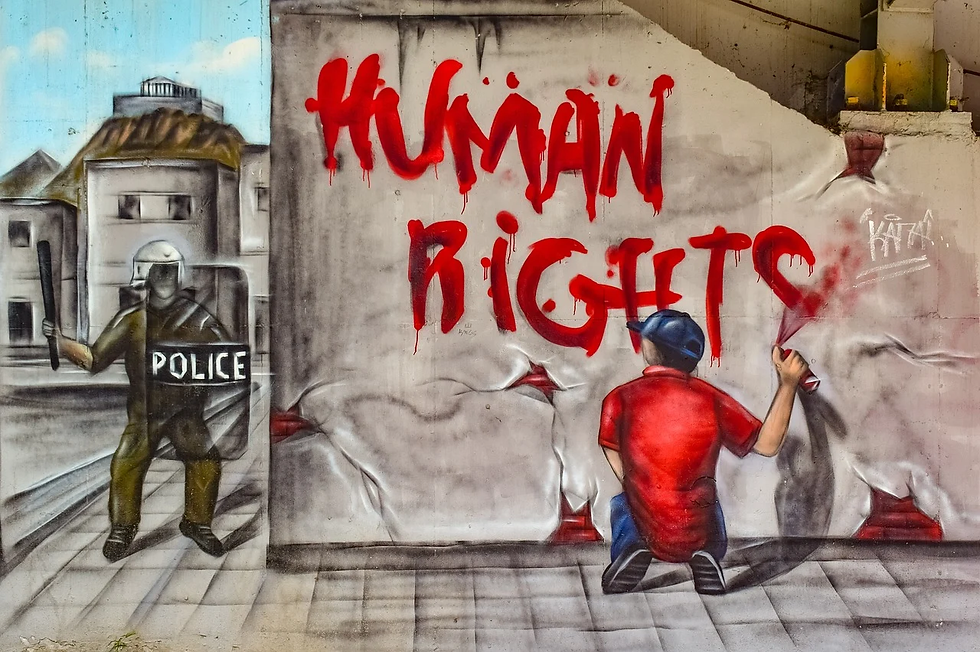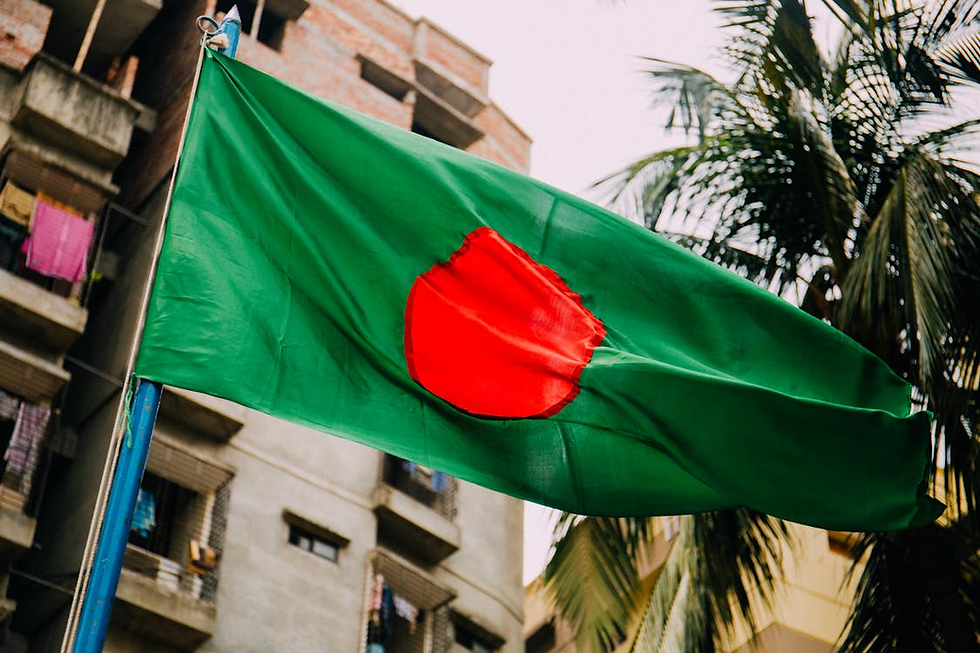Mass Killings in the Modern Era
- S. Mohammed
- Jul 19, 2020
- 3 min read
Updated: Dec 22, 2024
S. Mohammed writes about the persecution of religious and ethnic groups across the world, exploring the roots of such hateful attitudes. This article details the violence inflicted by governments and militant groups , and explores the harm that could be caused by the development of radiological weapons. Learn more about the different people targeted by such attacks, and the history of ongoing conflict.
The 20th century witnessed some of the most brutal genocides in history. Throughout World War Two, at least 6 million Jews were killed. The 1945 bombings of Hiroshima and Nagaski led to tens of thousands of immediate deaths, while the long-term death toll is thought to be over 200,000. It was then in 2006 that Saddam Hussein was charged with genocide for having caused over Kurdish 50,000 deaths in 1988.

As the 21st century approached, international relations were expected to improve. However, within one year of the new millenium, the September 11 attacks took place, killing thousands of people and disrupting public life. Even as the years progress, mankind can, and does, revert to its barbaric ways. Mass killings have been carried out through different mediums and weapons, including the use of chemical, biological, and nuclear warfare.
There has also been a rise in non-state actors, such as extremist groups, who legitimize mass genocide. Groups like Daesh (also known as Isis or Isil), Taliban, Al-Shabab and Boko Haram have, when in power, publicly executed other Islamic and religious minorities in Africa, Levant and the Indian subcontinent. Many of these deaths were through the means of execution and burning of a person. Daesh alone reportedly killed more than 1000 people belonging to Islamic and religious minorities in 2015, amongst several unreported mass executions. Boko Haram and Al Shabab have gained access to radiological material, and have the potential to use it en masse against those who defy them. Lastly, Taliban has launched a massive campaign to exterminate and categorically remove the Hazara and Balochi communities. These are only a few examples of non-state actors.
Often it is with governmental approval that such mass killings take place and usually is against a particular minority - whether that be ethnic or religious. For example, the Nigerian government’s terrorising of apparent ‘enemies of the state’, specifically that of Sheikh Zakzaky, who is an Islamic scholar of the Shi’a Islamic minority Three of his sons were killed by the Nigerian Army. Those who voice their opinions against the government have been accused of violence, and targeted by death squads.
The apparent use of chemical weapons by the Syrian government towards innocent civilians is just another example of government-enforced mass killings. Meanwhile, China has reportedly been carrying out a “cultural genocide” on its Uyghur citizens, while some of those imprisoned have allegedly taken their own lives.
However, due to media censorship and other security factors in place, the number of lives lost is uncertain. It has been reported by several international media outlets that the Chinese government is actively eradicating, and, in some cases, killing, its opponents by gathering them in ‘re-education camps’ and even if then there is a refusal to comply, they are gathered and killed with other prisoners of the state in a mass arrangement.
North Korea, one of the world’s least free nations, is reported to have killed those who refused to partake in military service, which is compulsory for both men and women, and attempted to flee. Turkey, which is an active suppressor of the Kurds, has forced minorities into refugee camps. These same camps have been targeted by air rides and drone strikes. Turkey has also increased the mass encroaching of religious minorities and, although it is not clear why such moves have taken place, there are certain indications that, in the future, these minorities may fall victim to mass killings.
Often not reported by international or due to the lack of coverage by media outlets, mass killings of innocent civilians by two nations, who are in dispute, are not given enough attention. The 2016 atrocities committed by the armies of Azerbaijan and Armenia in the region of Nagorno-Karabakh led to an increase in mass killings and loss of life.
As a result, it can be seen that, while mass killings and genocides were once mostly perpetrated by governments, several non-state actors have begun launching similar campaigns against minorities and oppositions.

_edited.png)



Comments